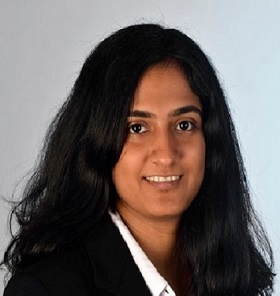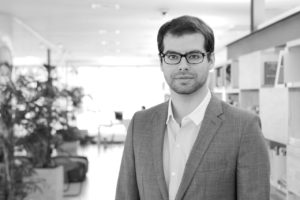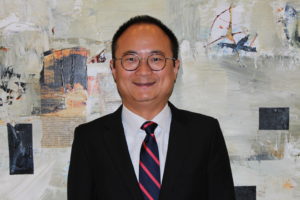In spring 2017, CAP is hosting a Lunch Series featuring our CAP Graduate Program Participants: Divya Srinivasan, Harvard Law School LL.M. Candidate; Pedro Hartung, Harvard Law School CAP-Affiliated Visiting Researcher and Ph.D. Candidate at University of São Paulo Law School; and Dan Zhou, Harvard Law School S.J.D. Candidate. During the talks, each participant will present his or her research findings, and attendees will have the opportunity to provide feedback and suggestions. Lunch will be provided.
If you would like to attend one or more of the Lunch Series talks, please RSVP here to ensure that we have enough food available.
Upcoming lunches are:
Contact CAP Visiting Researchers and Scholars Program Coordinator Mary Welstead, [email protected], with questions.
Analyzing India’s Efforts to Reform Juvenile Justice Law in the Aftermath of the Delhi Gang Rape Incident
 Discussion with Divya Srinivasan, Harvard Law School LL.M. Candidate
Discussion with Divya Srinivasan, Harvard Law School LL.M. Candidate
Thursday, March 23, 2017
12:00 – 1:00 PM
23 Everett Street
CAP Suite, G-24
Harvard Law School
Paper Topic: In December 2012, the brutal gang rape and murder of a young girl in Delhi caused shockwaves and protests across the nation. The incident, and specifically the penalty imposed on one of the offenders, who was a juvenile, sparked a national conversation on the effectiveness of existing juvenile justice laws in India. In response, in late 2015, the Indian Parliament passed the Juvenile Justice (Care and Protection of Children) Act, 2015, which inter alia, allowed for adolescents between the ages of 16-18 to potentially be tried as adults if they were accused of committing certain ‘heinous offences.’ My presentation critically analyzes these amendments, and the justifications for the change in the law. It also engages with the broader question of whether children under the age of 18 should ever be tried as adults.
Biography: Divya Srinivasan is pursuing an LL.M. at Harvard Law School, with a concentration in International Human Rights. She graduated from law school in India in 2014, after which she worked as a labor lawyer in India. She is taking courses on child rights during her year at Harvard. During her internships in law school in India, she worked on issues relating to child sexual assault.
Keeping Roots, Without Losing Wings: Redesigning Adoption as an Interfamily Cooperative Solution for Neglected Children
 Discussion with Pedro Hartung, Harvard Law School CAP-Affiliated Visiting Researcher and Ph.D. Candidate at University of São Paulo Law School
Discussion with Pedro Hartung, Harvard Law School CAP-Affiliated Visiting Researcher and Ph.D. Candidate at University of São Paulo Law School
Monday, March 27, 2017
12:00 – 1:00 PM
23 Everett Street
CAP Suite, G-24
Harvard Law School
Paper Topic: There is no consensus among legal scholars, experts and practitioners as to how best protect children who have been neglected by their parents. While some advocate the primacy of biological kinship and the child’s permanence in the original family, especially when analyzed alongside the social-economic causes of negligence related to structural poverty and the lack of support parents have, others claim the need for children suffering from repeated neglect to be removed as quickly as possible to adoptive families, without institutionalization or foster care, to safeguard their right to a healthy development. This presentation, however, explores a third way, where adoption is seen not as a legal kinship exclusion, but rather as a legal family extension for children, through a child-sensitive, inclusive and open decision-making process in the Justice System, with support given to interfamily cooperative social dynamics in the care of children.
Biography: Pedro Hartung is a CAP-affiliated Visiting Researcher for the 2016-17 academic year. He is a Ph.D. candidate at University of São Paulo Law School in the Public Law department, researching the state’s intervention in families’ affairs to protect children’s rights. Pedro holds a B.L. degree from University of São Paulo/Brazil and a Zertifikat– Aufbaustudium in den Grundzügen des Deutschen Rechts from Ludwig-Maximilians-University of Munich (LMU)/Germany. He is a member of the Brazilian Bar and works as Policy and Advocacy coordinator at Alana Institute, an NGO which specializes in the promotion and protection of children’s rights in Brazil. From 2012-2016 he served as a National Counselor at the National Council for the Rights of Children and Adolescents – CONANDA of the Presidency of the Republic of Brazil – Brasília/DC, representing the Brazilian state in various international agendas.
Whose (Grand)Children? Which Rationale?: A Recent Case Over Guardianship in Shanghai Related to Surrogacy
 Discussion with Dan Zhou, Harvard Law School S.J.D. Candidate
Discussion with Dan Zhou, Harvard Law School S.J.D. Candidate
Thursday, March 30, 2017
12:00 – 1:00 PM
23 Everett Street
CAP Suite, G-24
Harvard Law School
Paper Topic: A heterosexual couple married in Shanghai, China in 2007. As the wife is infertile, they developed a plan to have children through assisted reproductive technology procedures, which include in vitro fertilization and surrogacy. In other words, an egg from another woman is fertilized by sperm from the husband in a tube and then transferred to a third woman’s uterus. China’s Ministry of Health prohibits surrogacy, and the couple, therefore, had twin babies through underground services in 2011. Three years later, the husband died suddenly of an illness. The widow then continued to take care of the children. In December 2014, the parents of the late husband filed a lawsuit against the widow over guardianship alleging that she is not the biological mother of their grandchildren. The first-instance court ruled in favor of the plaintiffs for the two reasons: (i) the defendant is neither a biological mother nor a legal adopter, and (ii) guardianship by the grandparents is in the best interests of the grandchildren. The widow then appealed. The appellate court heard the case. In June 2016, the appellate judges overturned the lower court’s judgment, and determined that guardianship of the young children should be enjoyed and exercised by the widow after considering, among others, the principle of children’s best interests. Also, both courts held that underground surrogacy is unlawful. Neither party to the dispute has knowledge of the identities of biological or surrogate mothers. The talk will explore judicial construction(s) of “(grand)parenthood,” “custody/guardianship,” and “children’s best interests” in a case related to surrogacy in China, and discuss how the appellate judges developed legal doctrines for the status of children born through surrogacy, and for the court’s determination that the widow, a non-biological caregiver whose late husband is the children’s genetic father, should be appointed as guardian.
Biography: Dan Zhou is an S.J.D. candidate at Harvard Law School. Professor Elizabeth Bartholet is one of his field supervisors for his doctoral research project. In 2016, he completed the requirements of the LL.M. at Harvard Law School, and also holds a master’s degree from Renmin University of China.
His S.J.D. project will explore the topic of public interest lawyering in China. He will examine the nature, place of, and possibilities for public interest advocacy at the margins of Chinese society. Two areas of interest germane to his project are women’s rights and the rights of the child. Zhou will investigate how Chinese public interest lawyers work on advocacy for children, youth and women. By implication and by extension, his research will provide a window into the broader meaning of law and justice in authoritarian regimes.
He is one of the very few Chinese lawyers to ever come out to local, national and international media about his sexual orientation, personal experiences and legal advocacy. After he had worked on commercial law matters for 8 years, he founded a public interest legal advocacy organization in Shanghai in 2005, focusing on lesbian, gay, bisexual and transgender issues and rights of people with HIV/AIDS. Also, he made a groundbreaking contribution to research on, and critique of, legal treatment of same-sex intimacy in modern Chinese society by publishing a book in the Chinese language in China in 2009. In addition, he has cooperated with the China Law Center of Yale Law School over the past decade on comparative anti-discrimination law related to sexual orientation and gender identity as well as HIV/AIDS. He was a visiting scholar at Yale’s China Law Center in 2004 and in 2015.
